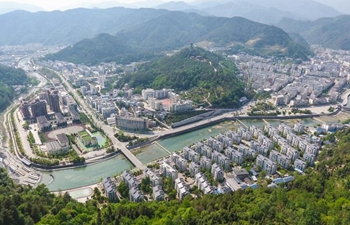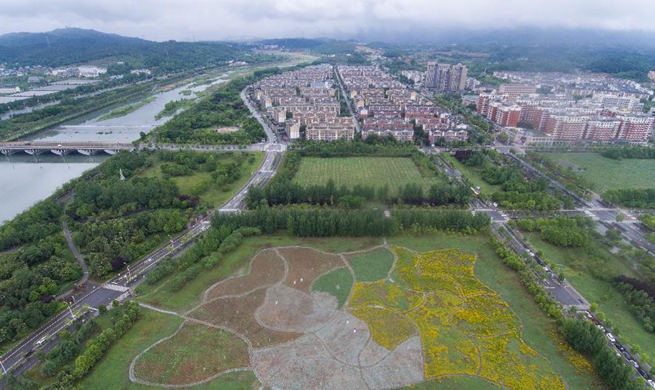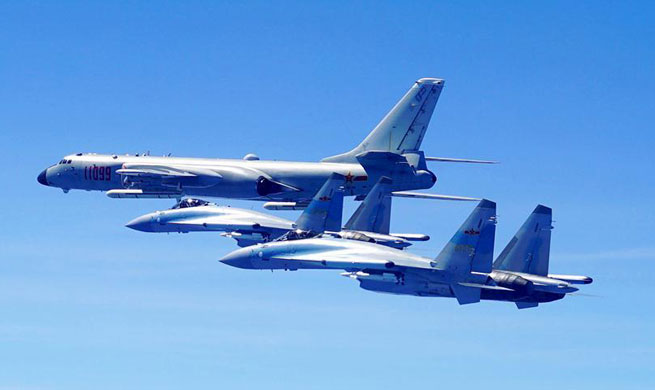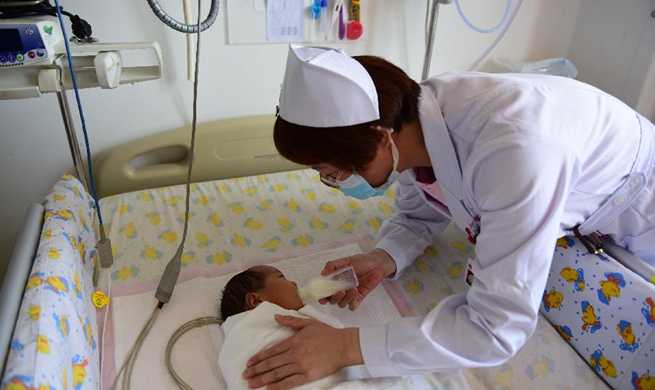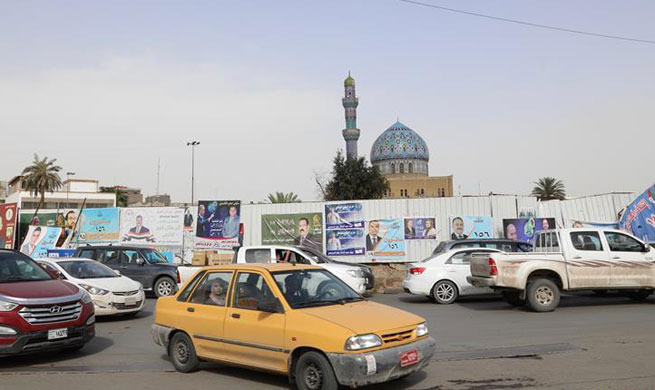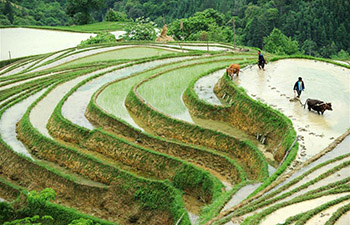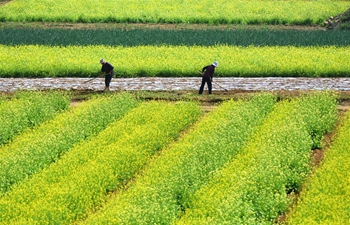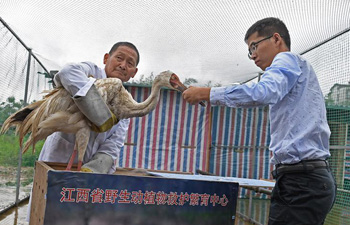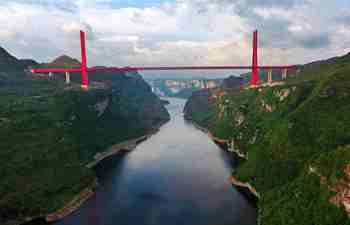BAGHDAD, May 12 (Xinhua) -- Iraq will hold its parliamentary election vote on May 12, in which about 7,000 candidates will compete for 329 seats. This is the first election after the country's historical victory over the Islamic State group in December last year.
This year's election sees some changes with the lists of coalitions and parties, as leading blocs are internally divided, which used to represent sectarian and ethnic identities: Shiite, Sunni and Kurds in the last three elections.
Such internal division in the traditional leading blocs would produce a different political map in the country after the upcoming polls.
SHIITE
Major Shiite coalitions, representing Shiite parties, have dominated the political scene since 2003.
Al-Nasr Coalition (Victory), headed by Iraqi Prime Minister Haider al-Abadi, included dozens of candidates from mainly Shiite parties and politicians in addition to a fewer number of candidates from other Iraqi spectrum.
The coalition is empowered by the recent victories over the extremist Islamic State (IS) group.
State of Law Coalition, headed by head of the Iranian-backed Islamic Dawa Party Nuri al-Maliki, is empowered by dozens of thousands of people loyal to Maliki himself, who held the position of prime minister from 2005 to 2014.
Despite his large number of loyalists, Maliki is rejected by many local, regional and international parties, especially after Iraq lost about one-third of its land to IS and more than four million people were displaced during his eight-year rule.
It is the first time in Iraq's elections that the Islamic Dawa Party, a Shiite, run in two separate coalitions after internal struggle between the two wings of the party led respectively by Maliki and Abadi.
The two Dawa wings could re-unite after the elections to form the largest coalition to select the next prime minister, who will in turn, form the next government.
Al-Fath Coalition (Conquest), headed by Hadi al-Ameri, is another challenger of Abadi. The coalition is an umbrella group for the Shiite political Badr Organization and paramilitary Shiite militias of Hashd Shaabi, who fought the IS group with government forces.
Other runners include Al-Hikma al-Watany Movement, or the National Movement of Wisdom, headed by Shiite cleric Ammar al-Hakim, who was previously the leader of Islamic Supreme Council of Iraq.
SUNNI
The Sunni Arab politicians entered the May 12 elections in two major blocs.
Al-Qarar (Decision) Coalition, is led by the former parliament speaker Osama al-Nujaifi, with many smaller Sunni parties and politicians. The coalition is backed by the prominent Sunni businessman Khamis al-Khanjar.
Another one is Al-Wataniyah (National) Coalition, which is led by the Shiite secular Ayad Allawi, a veteran politician and former prime minister.
The coalition includes the current parliament speaker Salim al-Jubouri and veteran Sunni politician Salih al-Mutlak. The coalition is mostly formed by moderate Sunni parties in addition to a few Shiite moderate parties.
KURDS
The Kurdish political parties are facing tough hurdles after the controversial referendum held on September 25 last year, as they have been facing divisions in their parties.
Losing some parliamentary seats in Baghdad is inevitable for the Kurds, after they lost control over the disputed areas outside the Kurdish region, including Kirkuk province.
Kurdistan Democratic Party (KDP), headed by the Kurdish leader Masoud Barzani, dominates the provinces of Erbil and Duhok.
Patriotic Union of Kurdistan (PUK), was led by the late Iraqi former President Jalal Talabani, and was later headed by Acting Deputy Secretary General Kosrat Rasul Ali.
PUK mainly dominates Sulaimaniyah province and the ethnically mixed province of Kirkuk, which is part of the disputed areas.
Gorran (Change) Movement is a political Kurdish group led by Omar Said Ali. It is the official opposition to the ruling two-party coalition of KDP and PUK.
The movement is showing strong competition to PUK's stronghold in Sulaimaniyah province in northeastern Iraq.
Iraq's previous general election was held on April 30, 2014, when the Iraqis elected 328 lawmakers for the parliament.






